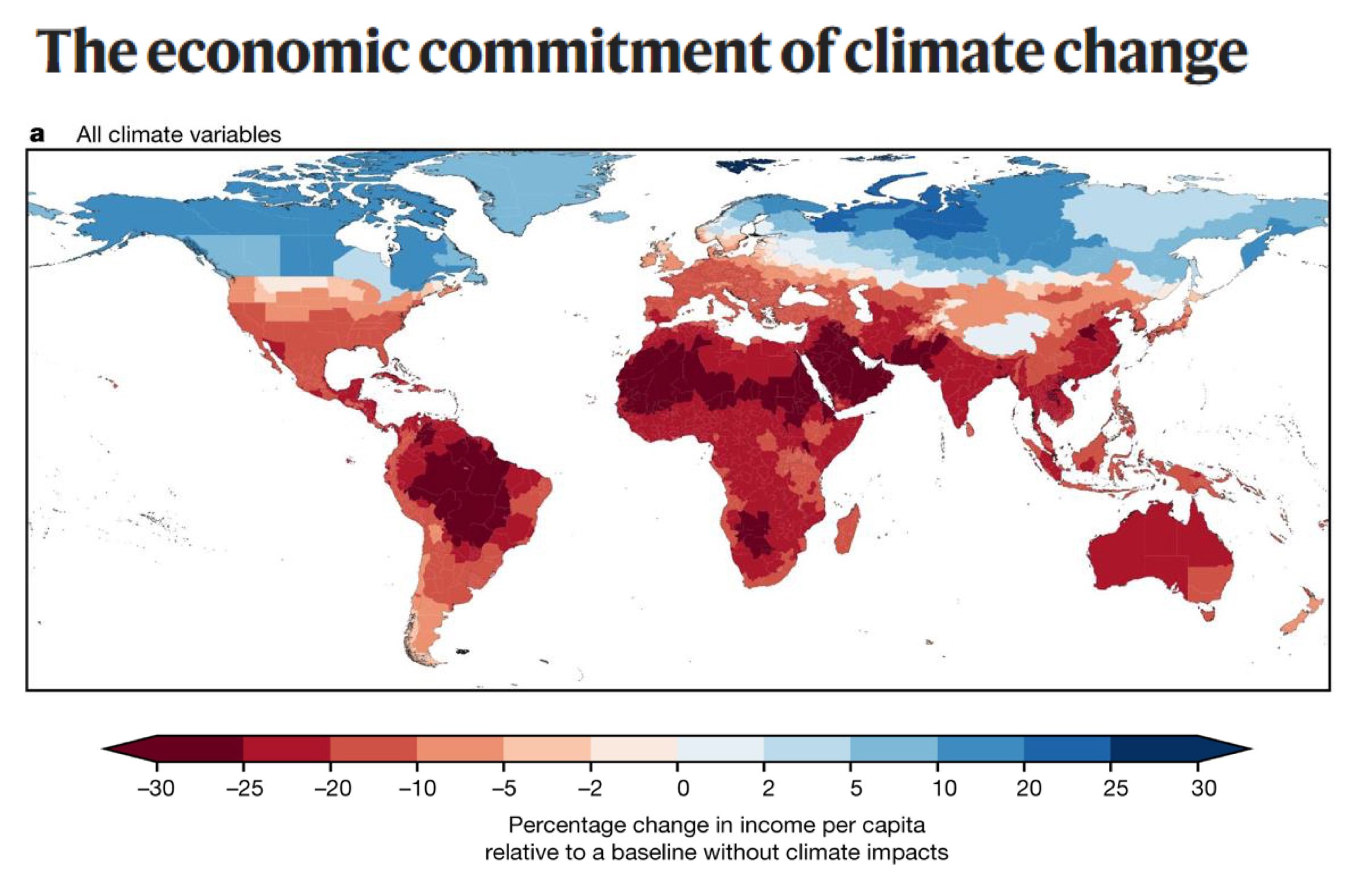The Need to Adapt
5 years, 2 months, 5 days, 1 hour
17 May 2024
Where in the world should our children choose to live, if they have the financial freedom to move, and the natives are welcoming, and priorities include not getting fried each summer and heading to the place with the best economic prospects?
This is the question played out in Dr. Parag Khanna's book MOVE but for a more visual and stark answer, look at the graphic here.
It comes from an academic paper that was shared with me a few weeks ago by colleague Dylan Trakas. It is titled ‘The Economic Commitment of Climate Change’ and was published in Nature in mid April by academics from the PIK (Potsdam Institute for Climate Impact Research), the Institute of Physics at University of Potsdam, and the MCC Berlin (from whose Carbon Clock each week I draw the countdown number that titles this blog).
It concludes that the world’s economy is committed to an income reduction of 19% (central estimate in a range 11 – 29%) within the next 26 years regardless of future emission pathways. In other words the damage is already baked-in to our future because nothing we do today can materially impact climate warming in the short term. Furthermore it concludes that the economic cost is 6 times what the world needs to invest to limit global warming to 2 °C. It strikes me the two points are independent, and one could perversely argue that means we have less income ahead to fund those investments, but I assume they mean to protect the following 50 years, the cost is small compared to the benefit.
Before we all rush to move to northern Canada, we should recognise that this tells a partial story, as all economic analysis must do in holding other factors constant. Through ongoing ingenuity we can create new sources of economic activity, and through technology higher levels of efficiency, that may offset some or all of the economic losses. Through climate adaptation we can protect to some extent our ability to continue to live in places where temperatures rise. And whilst the world is obsessed with economic growth, society has and will continue to adapt to oscillations in wealth over time, as most recently during Covid. So I do not take it as cause to despair, but important data that should only strengthen our resolve to do everything we can to decarbonise and adapt our world as quickly as possible.

